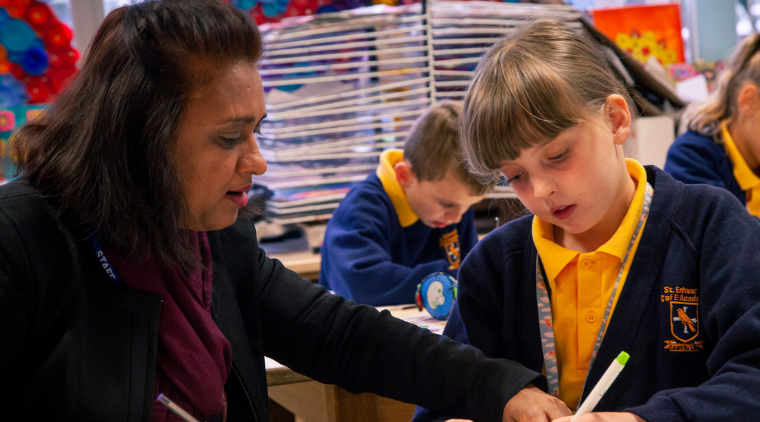PASS has been a key tool in supporting student wellbeing at Shenley Brook End School in Milton Keynes for many years. Assistant Head Zara Peskett explains that post-lockdown, it will play an even more crucial role.
Unprecedented challenges
Lockdown has confronted schools and teachers with unprecedented challenges. Now, as thoughts are turning to some kind of normality in September, fresh issues have to be addressed – not least how has lockdown affected children’s wellbeing, who has struggled the most, and how can teachers best engage these students?
We know that although many children have coped well with lockdown, many have not. But how can teachers identify which children are struggling the most and how? The problem isn’t straightforward, as Zara Peskett points out: “We have had a conversation in school about what it means to be disadvantaged. We’re finding you can’t just rely on the pupil premium spreadsheet to determine disadvantage – it’s not always the children you expect.”
Finding the ‘hard to spot’
Zara says lockdown has created a whole class of children who may be educationally or socially deprived without being in any way economically disadvantaged. “If a child’s parents have worked throughout this period, for instance, their children may have been home alone. They may not have been disadvantaged in terms of money but they may have been in terms of parental input.”
She also points out that when it comes to digital deprivation it’s not only the poorest families who may suffer. “Some households may be quite affluent but that doesn’t mean they will have laptops for every child or can always give their child access to a computer if several family members need it for work.”
This is why GL Assessment’s PASS (Pupil Attitudes to Self and School) assessment is so crucial. “PASS allows us to see how all students feel about school – and it allows us to recognise those we don’t always spot. It’s relatively easy to pinpoint students who are high achievers or those who are struggling, but PASS allows us to see the students in between.”
At Shenley Brook End School – a 1,500-student comprehensive secondary in Milton Keynes – they have been using PASS for five years. Zara says PASS enables her and her colleagues to uncover the learner behind the grade. “We’re quite passionate as a school that we don’t work towards students reaching their grades but reaching their potential,” she says.
“We often find students who, say, are predicted a 4 and get a 4 but PASS may identify other issues. You won’t always get the results you expect, so even if a student is achieving his or her target grade and performing as required, PASS may show they have very low confidence, for example, which allows us to have conversations with those students.”
Re-engaging students
Lockdown has made the use of PASS even more important. Zara says it will play a big part in how Shenley Brook End engages with students in the new academic year. “When they come back, they’ll have academic assessments to find out where they are. But what’s far more important to us is their wellbeing and how they feel about learning since they have been out of school. And, of course, that will have been impacted by the various home situations they have been in.”
PASS has taken on added significance, Zara says, because it will help the school identify if lockdown has made a difference to the way some students approach school. “Lockdown has certainly had an impact on some students.”
Zara says PASS will help Shenley Brook End establish a starting point when it comes to re-engaging students. “We’ll be able to use it to ensure the right student receives the right support. If PASS indicates that a child has issues with learning, we’ll send them over to our progress leaders. If it shows that a child doesn’t feel safe in school, we’ll get them to see our in-school counsellors, and so on.”
“We really use PASS as a signpost. What we found before we used PASS was that students might knock on the door of a staff member who wasn’t who they needed to see, or they’d be reluctant to ask for any help at all. It’s better for us to direct a struggling student than leave it to them to ask for help.”
Measuring impact
Students at Shenley Brook End take PASS twice annually, so teachers can measure their views throughout the year, once in the lead up to October half term and then at the end of June. It’s taken online and takes 20-25 minutes to complete. As the school has been using PASS for such a long time, teachers have evidence that it really works. “We can see what issues students have been identified with in September, what necessary interventions have been put in place and whether they are working or not in the June assessment,” says Zara.
She says that being able to do PASS will allow the school to gauge how students have been over lockdown, “and because it is online, even if they’re not all back in the building in September, it will be easy for them to log on at home and take it.”
Zara acknowledges that the past few months have been strange and that the school has worked hard to give all children access to an education. But she is really looking forward to getting back to some kind of normality: “It’s important to make sure that when our students come back to school it feels like we are supporting the whole child. We’re really excited that it looks like we’ll be back to normal, or as normal as possible, in September.”
PASS includes a ready-made collection of PASS Interventions, which provide ideas on how to address any issues identified in your results. In the Autumn term, we will also provide additional interventions that are specifically designed to build pupil confidence after a prolonged absence from school. Find out more at gl-assessment.co.uk/pass


